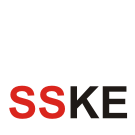From SSKE
| Line 1: | Line 1: | ||
<span style="font-size:large"></span><span style="font-size:large">[[SSKE Knowledge/isPartOfProgram::FEUP MESG - Services Engineering and Management]]</span> | <span style="font-size:large"></span><span style="font-size:large">[[SSKE Knowledge/isPartOfProgram::FEUP MESG - Services Engineering and Management]]</span> | ||
| − | = | + | <span style="font-size:large">Corporate Strategy Course</span> |
=== Objectives, Skills and Learning Outcomes === | === Objectives, Skills and Learning Outcomes === | ||
| Line 9: | Line 9: | ||
=== Program === | === Program === | ||
| − | 1. Introduction and objectives (APG)<br/><br/>2. Basic concepts (APG)<br/>a. Company<br/>b. Enterprise, Strategic management, Competitiveness, etc<br/><br/>3. Strategy formulation (APG)<br/>a. The schools of strategic thinking/ strategy safari<br/>b. Positioning model vs. resource based model<br/><br/>4. Business level strategy:<br/>a. Review of fundamental concepts and tools of analysis (APG)<br/>b. Review of strategies (cost, differentiation, focus) and chain value (APG)<br/>c. Chain value disarticulation (CMS)<br/>d. MBOs: the example of Probos MBO about ProHolding (JRS)<br/><br/>5. Creation of value /EVA (JRS)<br/><br/>6. Corporate level strategy<br/>a. Fundamental concepts (APG)<br/>b. Diversification/Portfolio Management (JRS)<br/>c. Vertical integration and strategic outsourcing (APG)<br/>d. Acquisitions (CMS)<br/>e. Internationalisation (MPS ?)<br/>f. Collaborative strategy (AM ?)<br/><br/>7. Strategy implementation/execution<br/>a. Fundamental concepts (APG)<br/>b. Balanced ScoreCard: Mobil NM&R and Epoli examples (JRS)<br/>c. “Leading the change” (CMS) | + | 1. Introduction and objectives (APG)<br/><br/>2. Basic concepts (APG)<br/>a. Company<br/>b. Enterprise, Strategic management, Competitiveness, etc<br/><br/>3. Strategy formulation (APG)<br/>a. The schools of strategic thinking/ strategy safari<br/>b. Positioning model vs. resource based model<br/><br/>4. Business level strategy:<br/>a. Review of fundamental concepts and tools of analysis (APG)<br/>b. Review of strategies (cost, differentiation, focus) and chain value (APG)<br/>c. Chain value disarticulation (CMS)<br/>d. MBOs: the example of Probos MBO about ProHolding (JRS)<br/><br/>5. Creation of value /EVA (JRS)<br/><br/>6. Corporate level strategy<br/>a. Fundamental concepts (APG)<br/>b. Diversification/Portfolio Management (JRS)<br/>c. Vertical integration and strategic outsourcing (APG)<br/>d. Acquisitions (CMS)<br/>e. Internationalisation (MPS ?)<br/>f. Collaborative strategy (AM ?)<br/><br/>7. Strategy implementation/execution<br/>a. Fundamental concepts (APG)<br/>b. Balanced ScoreCard: Mobil NM&R and Epoli examples (JRS)<br/>c. “Leading the change” (CMS) |
Visit the [http://sigarra.up.pt/feup_uk/disciplinas_geral.FormView?P_CAD_CODIGO=ESG0020&P_ANO_LECTIVO=2011/2012&P_PERIODO=1S Corporate Strategy Course Website]. | Visit the [http://sigarra.up.pt/feup_uk/disciplinas_geral.FormView?P_CAD_CODIGO=ESG0020&P_ANO_LECTIVO=2011/2012&P_PERIODO=1S Corporate Strategy Course Website]. | ||
| − | [[ | + | [[SSKE Knowledge/isTaughtBy::Guedes, Alcibíades Paulo Soares | ]][[SSKE Knowledge/isTaughtBy::Silva, Carlos | ]] |
| − | [[ | + | [[Category:SSKE Knowledge/University Course|SSKE_Knowledge/University_Course]] |
Latest revision as of 23:59, 18 May 2012
FEUP MESG - Services Engineering and Management
Corporate Strategy Course
Objectives, Skills and Learning Outcomes
1- BACKGROUND
Strategic thinking is becoming more and more relevant for an Industrial Engineer. The need to develop strategic management skills is crucial for the competitiveness of organizations, and only those o possess such skills will be able to assume higher levels of responsibility.
2- SPECIFIC AIMS
This course unit aims to endow students with the basic skills to think strategically, to develop a specific business and corporate strategy, to understand the issues and hurdles of implementation, in order to play a role in a given company's competitiveness.
3- PREVIOUS KNOWLEDGE
EIG0035 Project Appraisal
EIG0036 Human Resources Management
EIG0034 General Management
EIG0029 Operations Management
EIG0028 Total Quality Management
EIG0032 Financial Management
EIG0030 Logistics Management
EIG0031 Marketing
4- PERCENTUAL DISTRIBUTION
* Scientific component - 60%
* Technological component - 40%
5- LEARNING OUTCOMES
At the end of this subject, students should be able to:
- think strategically
- understand the issues and hurdles of implementing a given strategy
- design a specific business and corporate strategy
- design a strategic implementation plan
- define the controlling mechanisms for a given implementation plan
Program
1. Introduction and objectives (APG)
2. Basic concepts (APG)
a. Company
b. Enterprise, Strategic management, Competitiveness, etc
3. Strategy formulation (APG)
a. The schools of strategic thinking/ strategy safari
b. Positioning model vs. resource based model
4. Business level strategy:
a. Review of fundamental concepts and tools of analysis (APG)
b. Review of strategies (cost, differentiation, focus) and chain value (APG)
c. Chain value disarticulation (CMS)
d. MBOs: the example of Probos MBO about ProHolding (JRS)
5. Creation of value /EVA (JRS)
6. Corporate level strategy
a. Fundamental concepts (APG)
b. Diversification/Portfolio Management (JRS)
c. Vertical integration and strategic outsourcing (APG)
d. Acquisitions (CMS)
e. Internationalisation (MPS ?)
f. Collaborative strategy (AM ?)
7. Strategy implementation/execution
a. Fundamental concepts (APG)
b. Balanced ScoreCard: Mobil NM&R and Epoli examples (JRS)
c. “Leading the change” (CMS)
Visit the Corporate Strategy Course Website.



